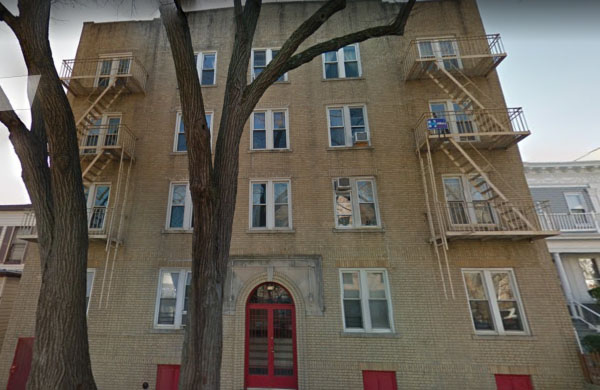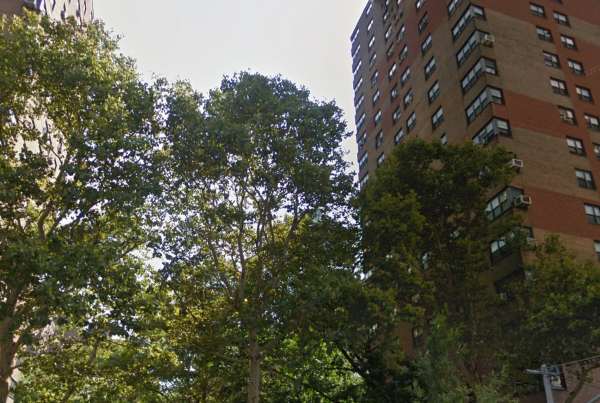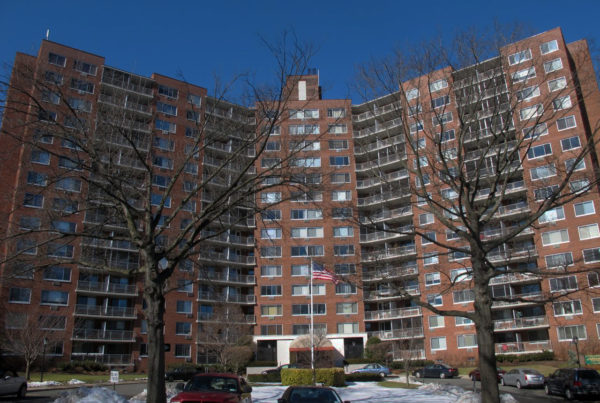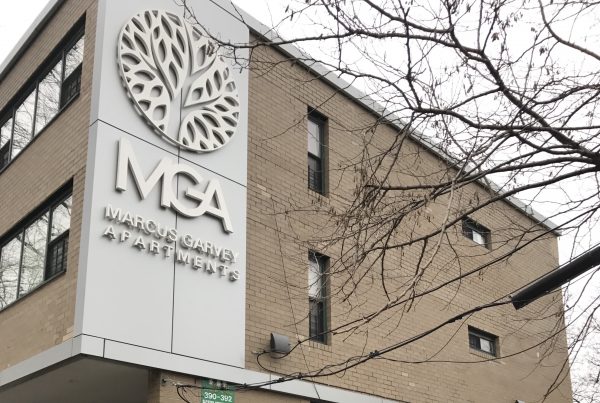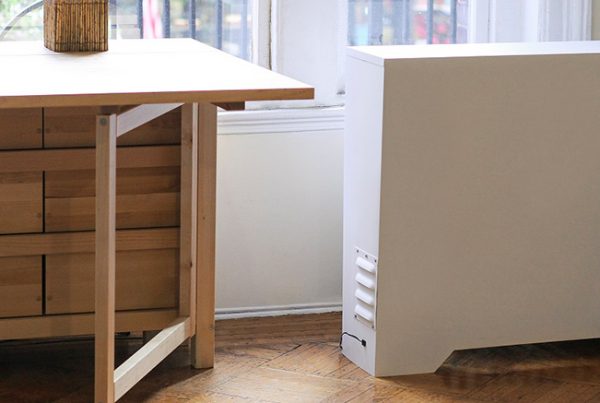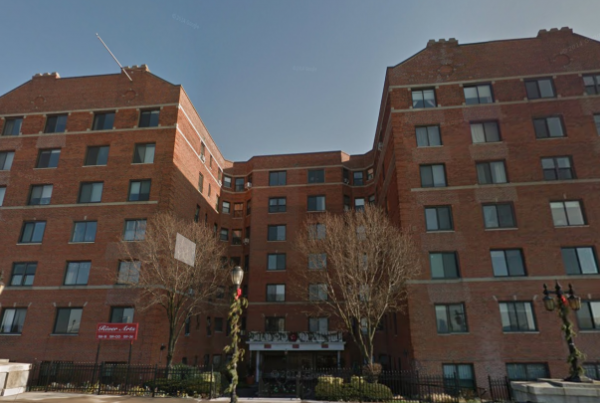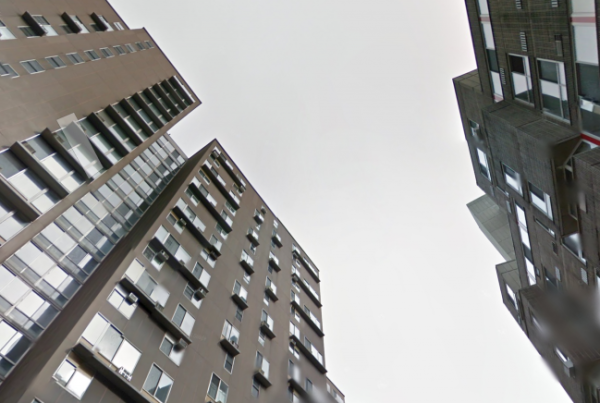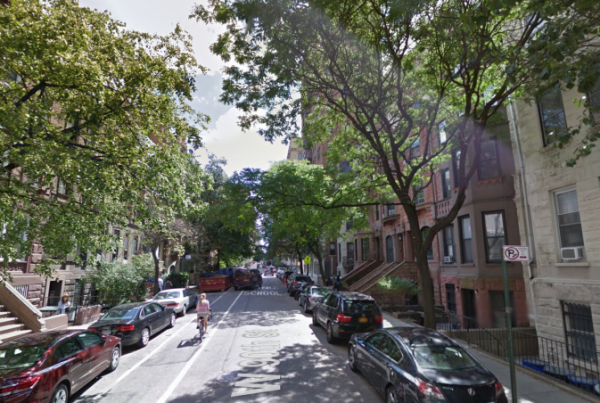Elmo Homes is a self-managed 24-unit co-op building. The owners wanted to purchase and install rooftop solar to generate electricity onsite and lower greenhouse gas emissions. Project developer, Zero Carbon, partnered with the NYCEEC to create an integrated technology and finance solution, including a 30.7 kW photovoltaic system and a new metering system capable of aggregating usage data from each housing unit, all with no upfront cost to the co-op association.
Continue readingCredit Enhancement for Fuel Conversion and Energy Efficiency in Affordable Multifamily Housing
Franklin Plaza had deferred maintenance for years and the building systems were outdated. The heating plant burned dirty #6 oil and was highly inefficient, being kept on throughout the summer just to produce hot water. The project converted the fuel from oil and separated the heat and hot water systems.
Continue readingPower Purchase Agreement for Cogen System at Bayside Affordable Multifamily Housing
The building entered into a power purchase agreement (PPA) with Strategic Finance Group to purchase electrical and thermal generation from a 125 kW Tecogen cogeneration system. NYCEEC provided a $420,000 loan to a special purpose entity owned by Strategic Finance Group to purchase and install the cogeneration system and associated equipment. This loan with a $201,000 NYSERDA incentive financed the majority of the project cost.
Continue readingEnergy Services Agreement for Solar + Storage in Affordable Housing
Demand Energy, a leading energy storage company in NYC, was looking to expand into new markets. They opened conversations with L+M Development Partners, a developer/ owner of low-income housing, regarding a 300kW lithium ion battery system to take full advantage of solar and fuel-cell energy generation at the Marcus Garvey Apartments, a large housing complex in Brooklyn, within the geographic boundary of the grid constrained Brooklyn-Queens Demand Management (BQDM) area.
Continue readingFinancing for Pilot Radiator Upgrades to Drive Energy Efficiency
Radiator Labs had received contracts from the managers of seven buildings agreeing to serve as pilot sites for the commercial product demonstration over the 2014-2015 winter heating seasons. The building owners agreed to cover 40% of the cost of the pilot, and NYSERDA committed to cover the remaining 60%. However, the agreement created a cash flow issue for Radiator Labs. It needed to pay upfront for manufacturing and installation but would not receive payment from the participants until after installation and finally measurement of the energy saving results.
Continue readingEarly-Stage Financing for Energy Audit and Fuel Conversion in Co-op
River Arts, along with nine other surrounding buildings on 158th Street, were organizing as a “cluster” to receive a no-cost natural gas connection from ConEd. In order to commit to the cluster, River Arts needed rapid access to financing to start the conversion project.
Continue readingESA and PPA Financing for Cogeneration and Insulation Upgrades in Multifamily Housing
Roosevelt Landings wanted to upgrade outdated systems and improve the complex’s resiliency. The upgrades included cogeneration, whole-building air sealing, floor slab insulation, networked programmable thermostats and high-efficiency boilers.
Continue readingFinancing for Fuel Conversion in Brooklyn Affordable Multifamily Housing
The project was a retrofit of the affordable multifamily building in Brooklyn. The building owner sought to save money and improve building performance by implementing energy upgrades recommended in its NYSERDA energy audit.
Continue readingFinancing for Local Law 43 Compliance with Fuel Conversion in Manhattan Co-op
The fuel conversion project brought the co-op into compliance with Local Law 43: Clean Heat and installed much more efficient separation of the heat and hot water systems because the boiler can now be shut down in the summer.
Continue readingESA Financing for Energy Effiency and Resiliency After Superstorm Sandy
SCIenergy provided a turnkey energy efficiency retrofit solution with a managed energy services agreement (ESA). The project was severely impacted by Superstorm Sandy with all of the new equipment flooded. In the post-Sandy rebuild, NYCEEC provided a $2.8 million loan to refinance the ESA structure and fund deeper energy efficiency improvements and resiliency measures including State-of-the-art digital controls, building management system, high-efficiency variable speed motors, floor isolation dampers, and district steam to gas conversion.
Continue reading
